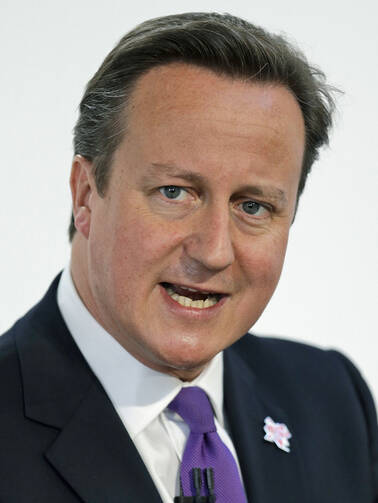Absolutely nobody saw that coming. Pundits, pollsters and commentators all got it comprehensively wrong. Even the senior politicians could not believe what they were seeing and not one of them dared to claim they had predicted this. At precisely one second after 10 p.m., when the polls closed, the disbelief of the various TV frontmen was palpable as they bore the astonishing news from the exit-polls. The media were strictly embargoed from announcing this until Big Ben had struck 10. What those exit-polls were calling was a Labour collapse, the Conservatives on track for possibly an overall majority, disaster for the Liberal Democrats, a minimal gain for the UK Independence Party (UKIP) and an almost clean sweep and rout of Labour in Scotland for the S.N.P. As the particularly British ritual of vote-counts in drafty sports-halls and solemn declarations unfolded, we saw that those exit polls had indeed called it right and the polls had been very wrong. The Tories were securing a shock majority, confounding every single pre-election survey.
This Friday lunchtime, David Cameron swept into Buckingham Palace. He did not expect this either; he has said so. The monarch now invites him to form a government which he can do, untrammelled by the need to negotiate a coalition. His Tory party has defied every single one of the pre-election polls and are set to govern again. Everywhere you look, crushed political leaders are falling on their swords. The collapse of Ed Miliband’s Labour Party’s vote, taking 234 seats, compared with 258 in 2010 and suffering a complete wipe-out in Scotland, has led to his resignation as party leader this morning. Former coalition partners in the previous administration, the Liberal Democrats, suffered a similarly catastrophic collapse in their vote leading to the resignation of their leader, Nick Clegg; while in Scotland, the S.N.P have practically swept the nation, winning a breathtaking 56 seats out of 59, up from 6 going into this campaign, completely obliterating Labour. The UKIP leader Farage believed, a few short weeks ago, that he might hold the balance of power but now he has failed even to get elected and he too has resigned as leader. The metaphor of a bloodbath, or perhaps a bonfire of the vanities, is hard to avoid.
The sense of the Union fracturing cannot be ignored. England has voted Tory, Scotland has voted S.N.P.; Wales has voted Labour and Northern Ireland for the Democratic Unionist Party (D.U.P.). Of course, it’s not quite as clear-cut as that, but the pattern that emerges is of the U.K. nations taking very different direction and trajectories. Nowhere is that bifurcation more obvious than in Scotland, where Nicola Sturgeon’s National Party swept up all but three seats, removing the Scottish Labour leader Jim Murphy and senior Westminster politician Douglas Alexander, Labout campaign chief, crushed by a 20 year-old woman who has still to complete her final exams for her politics degree (she says she will get them done).
All sorts of questions now begin to air. For Labour, there will be an apportioning of blame for their massive disappointment, although Miliband in resigning took the liability “absolutely and totally” on himself. Their catastrophic collapse in Scotland will surely bear particular scrutiny, with some saying that they had assumed an entitlement to rule. One defeated Labour M.P. told the BBC, around 3 a.m., that the “voters hadn’t listened to us”; in the cold light of day, he might recall that it’s meant to be the other way round. The triumphant Tories can press ahead with their commitment to an in/out referendum on European Union membership, likely in 2017; how will that play out? The Scottish Nationalists, providing the opposition to Tory rule that Labour used to assume, have come within a whisker of total domination of Scotland but, owing to the collapse of any threat to Cameron from Labour, now need to think carefully about how they will use their numbers in the House of Commons. They will not now be able to derail Cameron’s plans, making their campaign pledges to oppose austerity and to resist the renewal of Trident nuclear missiles suddenly sound rather toothless. Cameron, unexpectedly buoyant, would nonetheless do well to talk to Sturgeon lest he look too triumphant and risk deepening what is bound to be a worsening sense of disenfranchisement in Scotland. That Scotland is now on an entirely different political trajectory from England is beyond doubt. This is an election result that has not only astonished everyone but that raised many more questions than it answered.
David Stewart, S.J., is America's London correspondent.








